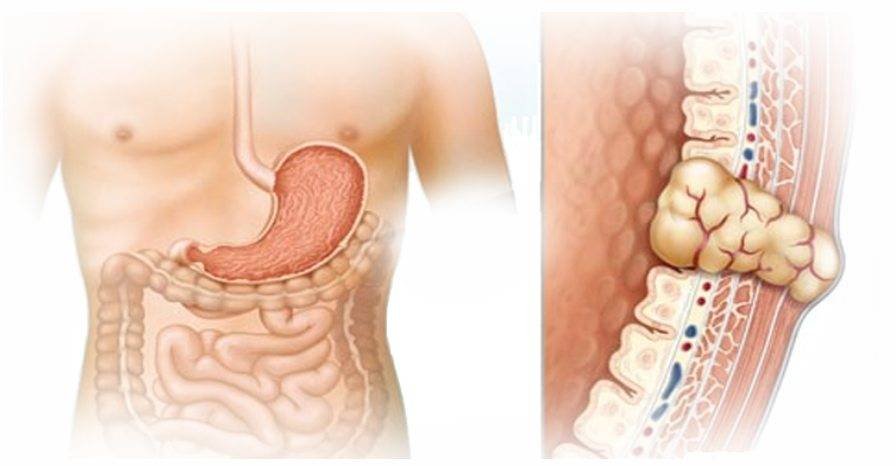GIST Cancer Surgery – Treatment, Recovery, Cost & Survival

Gastrointestinal Stromatous Tumours (GISTs) are a rare form of cancer that develops in the digestive tract, most commonly in the stomach or small intestine. While uncommon, they can pose serious health risks if not treated promptly. However, advanced surgical techniques have significantly improved the way doctors manage GISTs, providing you with better outcomes and increased hope for long-term survival.
The cornerstone of treatment is GIST cancer surgery, which focuses on safely removing the tumour and preventing it from coming back. For many patients, this procedure is a crucial step toward recovery and regaining a quality of life.
In this blog, we’ll explain everything you need to know about GIST surgery: how it’s performed, the types of procedures available, what recovery really looks like, the potential risks, costs involved, and what survival rates tell us about life after treatment.
Understanding GIST and Its Treatment Options
A Gastrointestinal Stromal Tumour (GIST) forms from special cells in the digestive system known as the interstitial cells of Cajal. While some tumours may remain small and harmless, others grow aggressively and spread to other organs.
Dr. Deep Goel says, “We plan every surgery with precision, keeping in mind the tumour’s size, location, and the patient’s overall health. No two GIST surgeries are the same, and personalisation is critical for success.”
Gastrointestinal Stromal Tumour Treatment Options include:
- GIST Cancer Surgery: The primary treatment for localised tumours
- Targeted therapy (e.g., Imatinib): Used before surgery to shrink tumours or after surgery to prevent recurrence
- Chemotherapy & Radiation: Rarely used, as GIST tumours do not typically respond well to them
For most patients, surgery for GIST is the first and most crucial step in management.
What is GIST Cancer Surgery?
Gastrointestinal Stromal Tumour Surgery involves physically removing the tumour and, if necessary, parts of the surrounding tissue. The goal is a complete GIST resection with clear margins, meaning no cancer cells remain in the surrounding tissue.
Types of GIST Cancer Surgical Options
- Surgical Removal of GIST (GIST Resection)
- Standard approach for localised tumours
- Surgeon removes the cancer along with a margin of healthy tissue
- Laparoscopic GIST Surgery
- A minimally invasive procedure using small incisions and a camera
- Preferred for smaller tumours in easily accessible areas
- Advantages include quicker recovery, less pain, and reduced hospital stay
- Open GIST Surgery
- Required for larger tumours or those in difficult locations
- Involves a larger incision but allows direct access to the tumour
- GIST Tumour Removal with Organ Involvement
- If the tumour has spread to nearby organs, partial removal of the stomach, intestine, or liver may be necessary
A patient of Dr. Deep Goel shared, “When I was diagnosed with a 7 cm GIST in my stomach, I was terrified, but when I met Dr. Goel, he explained the surgical options clearly. I underwent laparoscopic GIST surgery, and within 3 weeks, I was back on my feet. The guidance and care I received made the journey less overwhelming.”
What Happens During GIST Surgery?
The surgical procedure depends on the size and location of the tumour. In most cases:
- The patient is given general anaesthesia
- The surgeon identifies the tumour site
- GIST tumour removal is performed either laparoscopically or through open surgery
- The tumour is sent to a pathology lab for confirmation
- Nearby lymph nodes may be examined if there is suspicion of spread
The surgery typically takes 2 to 4 hours, and the hospital stay ranges from 3 to 7 days, depending on the recovery and any complications.
Another patient of Dr. Deep Goel shared, “I had been experiencing bloating and fatigue for months before being diagnosed with a gastrointestinal stromal tumour. My surgery was complex because the tumour was large, but Dr. Deep Goel successfully removed it through open surgery. The post-op care, dietary advice, and regular follow-up scans have kept me cancer-free for over two years now. I feel truly grateful.”
Recovery After Gastrointestinal Stromal Tumour Surgery
GIST surgery recovery is a gradual process that varies from patient to patient.
Immediate Post-Op Care
- Patients are closely monitored in the recovery room
- Pain management is provided using medications
- A liquid diet may be introduced before returning to solid foods
GIST Surgery Recovery Time
- Laparoscopic GIST surgery: Patients may return to normal activities within 2–3 weeks
- Open GIST surgery: Recovery may take 6–8 weeks
GIST Surgery Post-Op Care and Follow-Up
- Regular wound care and gradual resumption of daily activities are recommended
- Light walking aids blood circulation and prevents complications
- Visit for GIST surgery follow-up every few months to check healing and watch for recurrence
Possible GIST Surgery Side Effects and Complications
- Pain or discomfort at incision sites
- Fatigue for several weeks
- Digestive issues such as diarrhoea, bloating, or acid reflux
- Rare but possible complications include infection, bleeding, or leakage from surgical sites
Being aware of what to expect after GIST surgery helps patients and families prepare for the recovery journey.
Treatment After Surgery
Even after successful surgical removal of GIST, additional treatments are often recommended.
- Targeted therapy with Imatinib (Gleevec): Prescribed as adjuvant therapy to lower the chance of the tumour returning
- Long-term monitoring: Imaging tests (CT/MRI) every 3–6 months to ensure no recurrence
- Lifestyle adjustments: A Healthy diet, avoiding alcohol, and staying physically active all contribute to overall recovery
Dr. Deep Goel emphasises, “One of the most important things after GIST surgery is consistent follow-up. We emphasise to patients that recovery doesn’t stop at the hospital; it continues for months, sometimes years.”
GIST Tumour Survival Rate
- If the tumour is found early and removed, the 5-year survival rate is as high as 70–90%.
- For advanced cases, survival depends on how well the tumour responds to medicines after surgery.
Cost of GIST Surgery
The cost of GIST surgery varies significantly depending on the location where you are treated.
Factors That Affect Cost
- Type of surgery (laparoscopic vs. open)
- City and hospital type (specialised cancer hospital vs. general hospital)
- Experience of the surgeon
- ICU stay, recovery care, and medicines after surgery
Approximate Costs
- India: ₹2.1 – ₹4 lakh (USD 2,500 – 4,800)
- Other Asian countries (Thailand, Turkey, UAE): USD 8,000 – 15,000
- USA / Europe: USD 25,000 – 50,000 or more
These costs generally cover surgery, anaesthesia, hospital stay, and immediate recovery care, but may not include the costs of targeted therapy medications. Patients are encouraged to discuss detailed estimates with their hospital before surgery.
Life After GIST Surgery
Life after GIST cancer surgery includes regular check-ups, targeted therapy, diet changes, and ongoing recovery support.
- Regular check-ups: Patients are closely monitored through scans and blood tests
- Targeted therapy medicines: These are given to high-risk patients. These medicines block the growth signals that GIST cells receive
- Diet changes: Some patients may need to eat smaller, more frequent meals if part of their stomach/intestine was removed
- Emotional support: Joining a cancer support group or speaking with a counsellor can help cope with anxiety
Dr. Deep Goel adds, “Life after GIST surgery is not just about recovery; it’s about regaining confidence, health, and the ability to live fully. With the right follow-up and lifestyle choices, patients can look forward to long, healthy lives.”
Final Thoughts
GIST cancer surgery offers the best chance of long-term survival and improved quality of life. Whether it’s laparoscopic GIST surgery for smaller tumours or open GIST surgery for larger, complex cases, timely intervention can be life-saving.
With proper GIST surgery recovery, follow-up care, and ongoing support, patients can return to their everyday lives within weeks to months. India, with its combination of affordability, advanced technology, and expert surgeons, provides excellent care for both domestic and international patients.
If you or a loved one has been advised to undergo Gastrointestinal Stromatous Tumour Surgery, consulting an experienced specialist will be the most crucial step toward healing and hope.
FAQs About GIST Cancer Surgery
1. Is surgery always needed for GIST?
Yes, surgery is the primary treatment for most GISTs if the tumour can be safely removed. It gives the best chance for long-term control, especially when the cancer hasn’t spread.
2. Can GIST tumours come back after surgery?
Yes, recurrence is possible. That’s why regular follow-up scans and, in some cases, targeted therapy (like Imatinib) are used to lower the risk of recurrence.
3. How do doctors decide between laparoscopic and open GIST surgery?
It depends on the tumour’s size and location; small, accessible tumours are treated laparoscopically, while larger or complex ones need open surgery.
4. How soon after diagnosis should GIST cancer surgery be performed?
Usually, surgery is done soon after diagnosis. Sometimes, targeted therapy is given first to shrink the tumour.
5. How often do patients need scans after GIST surgery?
Follow-up imaging is critical. Typically, scans are done every 3–6 months for the first few years, then once a year. This helps detect any recurrence early and ensures effective long-term care.
Explore more blogs: What Are the Latest Advancements in GI Cancer Treatment?

